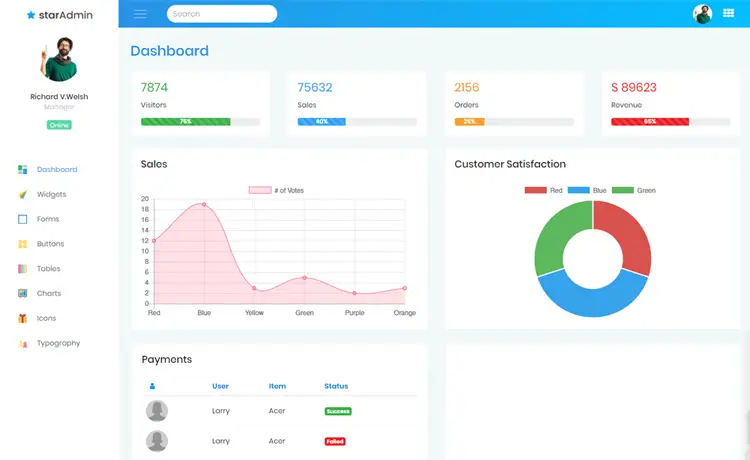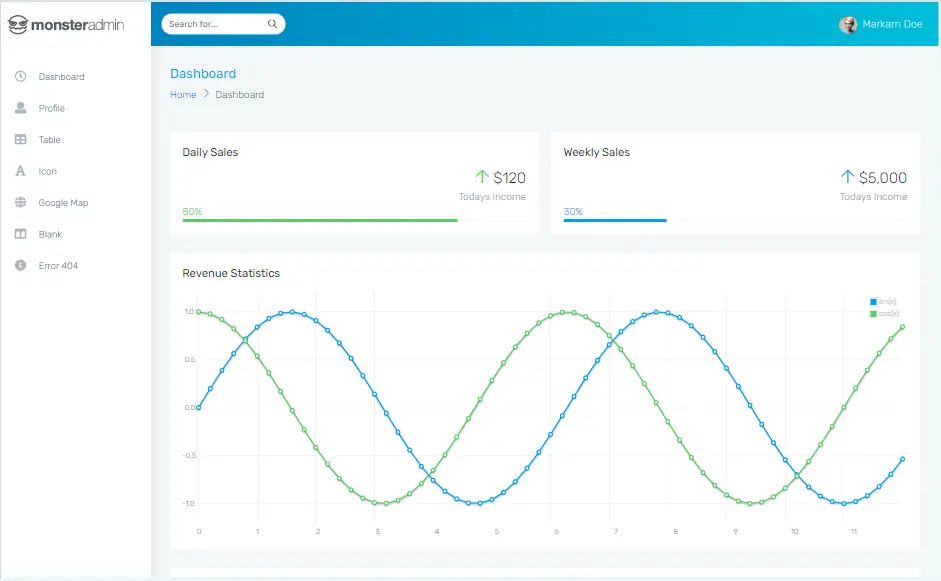How to serialize non-public properties using System.Text.Json
By Tan Lee Published on Mar 14, 2025 438
- Create a custom JSON converter and use reflection to retrieve the non-public properties.
- Use the
JsonIncludeattribute to enable (de)serialization of public properties with non-public accessors (this does not apply to non-public properties).
In this article, I’ll demonstrate both approaches for handling non-public properties.
Write a custom JSON converter to serialize non-public properties
When the built-in System.Text.Json functionality doesn’t quite meet your needs, you can create a custom JSON converter. In this case, to serialize non-public properties, you can write a custom JSON converter to (de)serialize all the properties you want including non-public ones.
Here’s an example of a custom JSON converter that handles both public and non-public properties during serialization:
using System.Text.Json;
using System.Text.Json.Serialization;
using System.Reflection;
public class CustomPersonConverter : JsonConverter<Person>
{
public override void Write(Utf8JsonWriter writer, Person person, JsonSerializerOptions options)
{
writer.WriteStartObject();
foreach (var prop in person.GetType().GetProperties(BindingFlags.Instance | BindingFlags.Public | BindingFlags.NonPublic))
{
writer.WriteString(prop.Name, prop.GetValue(person)?.ToString());
}
writer.WriteEndObject();
}
public override Person Read(ref Utf8JsonReader reader, Type typeToConvert, JsonSerializerOptions options)
{
// Intentionally not implemented
throw new NotImplementedException();
}
}To use this custom JSON converter, add it to JsonSerializerOptions.Converters and pass the JsonSerializerOptions during serialization:
var options = new JsonSerializerOptions(); options.Converters.Add(new CustomPersonConverter()); var json = JsonSerializer.Serialize(person, options);
Example of a custom JSON converter that serializes and deserializes non-public properties
Let's say we want to serialize and deserialize all properties, including non-public ones. We’ll use the following type, SystemEvent:
public class SystemEvent
{
public string Name { get; set; }
internal DateTimeOffset HappenedAt { get; set; }
public SystemEvent()
{
HappenedAt = DateTimeOffset.Now;
}
}This example assumes the internal property cannot be made public.
Custom JSON converter
The custom JSON converter uses reflection to retrieve all properties both public and non-public:
- The constructor uses reflection to gather properties into a dictionary to avoid repeated lookups during deserialization.
Write()loops through the dictionary and serializes each property usingUtf8JsonWriter.Read()reads through the JSON properties withUtf8JsonReaderand updates the object properties accordingly.
using System.Collections.Generic;
using System.Reflection;
using System.Text.Json;
using System.Text.Json.Serialization;
public class CustomSystemEventConverter : JsonConverter<SystemEvent>
{
private readonly Dictionary<string, PropertyInfo> PropertyMap;
public CustomSystemEventConverter()
{
PropertyMap = new Dictionary<string, PropertyInfo>(StringComparer.OrdinalIgnoreCase);
foreach(var property in typeof(SystemEvent).GetProperties(BindingFlags.Instance | BindingFlags.Public | BindingFlags.NonPublic))
{
PropertyMap.Add(property.Name, property);
}
}
public override void Write(Utf8JsonWriter writer, SystemEvent systemEvent, JsonSerializerOptions options)
{
writer.WriteStartObject();
foreach(var prop in PropertyMap.Values)
{
if (prop.PropertyType == typeof(string))
{
writer.WriteString(prop.Name, prop.GetValue(systemEvent)?.ToString());
}
else if (prop.PropertyType == typeof(DateTimeOffset))
{
writer.WriteString(prop.Name, ((DateTimeOffset)prop.GetValue(systemEvent)).ToString("o"));
}
}
writer.WriteEndObject();
}
public override SystemEvent Read(ref Utf8JsonReader reader, Type typeToConvert, JsonSerializerOptions options)
{
if (reader.TokenType != JsonTokenType.StartObject)
throw new JsonException("Expected StartObject token");
var systemEvent = new SystemEvent();
while (reader.Read())
{
if (reader.TokenType == JsonTokenType.EndObject)
return systemEvent;
if (reader.TokenType != JsonTokenType.PropertyName)
throw new JsonException("Expected PropertyName token");
var propName = reader.GetString();
reader.Read();
if (!PropertyMap.ContainsKey(propName))
throw new JsonException($"JSON contains a property name not found in the type. PropertyName={propName}");
var property = PropertyMap[propName];
if (property.PropertyType == typeof(string))
{
property.SetValue(systemEvent, reader.GetString());
}
else if (property.PropertyType == typeof(DateTimeOffset))
{
property.SetValue(systemEvent, reader.GetDateTimeOffset());
}
}
throw new JsonException("Expected EndObject token");
}
}To use the custom JSON converter for serialization, you need to add it to JsonSerializerOptions.Converters:
var systemEvent = new SystemEvent() { Name = "Meltdown" };
var options = new JsonSerializerOptions();
options.Converters.Add(new CustomSystemEventConverter());
var json = JsonSerializer.Serialize(systemEvent, options);This will serialize to:
{"Name":"Meltdown","HappenedAt":"2025-03-13T10:52:53.9599698-04:00"}Then, to deserialize the JSON, use the same custom converter:
var sysEvent = JsonSerializer.Deserialize<SystemEvent>(json, options);
Using the JsonInclude attribute
Starting in .NET 5, the JsonInclude attribute was introduced. This enables (de)serialization for public properties with non-public accessors.
Here’s an example of using JsonInclude with a property that has a private setter:
using System.Text.Json.Serialization;
public class SystemEvent
{
public string Name { get; set; }
[JsonInclude]
public DateTimeOffset HappenedAt { get; private set; }
}For deserialization, this JSON will work:
{
"Name": "Overload",
"HappenedAt": "2025-02-22T07:42:15.8963892-05:00"
}Deserialization example:
var sysEvent = JsonSerializer.Deserialize<SystemEvent>(json); Console.WriteLine(sysEvent.HappenedAt);
Output:
2/22/2025 7:42:15 AM -05:00
This shows the HappenedAt property, which has a private setter, being populated correctly.
Can only apply JsonInclude to public properties
It’s important to note that JsonInclude only works for public properties with non-public accessors. You cannot apply JsonInclude to non-public properties.
using System.Text.Json.Serialization;
public class SystemEvent
{
public string Name { get; set; }
[JsonInclude]
internal DateTimeOffset HappenedAt { get; set; }
}Attempting to (de)serialize will throw the following exception:
System.InvalidOperationException: The non-public property ‘HappenedAt’ on type ‘SystemEvent’ is annotated with ‘JsonIncludeAttribute’ which is invalid.





